Garmin Forerunner 55 Review
Entry Level running watch with a lot of strong features.
The Forerunner 55 is the new ‘smallest’ watch in the Forerunner segment (well, technically after the Forerunner 30, but that hasn’t been updated in four years) and a competitor to the COROS Pace 2. My sense is that Garmin got a punch in the gut when the COROS Pace 2 launched as it has a bunch of more ‘on device’ features than the then ‘entry level’ Forerunner 45. In any case, the 55 comes with a bunch of features we’ve seen on higher end watches like the 245.
Looks
Firstly the 55 only comes in the larger size, 42mm and now in three four colors. White, Black, Aqua and ‘Monterra Gray’. The last is an exclusive. But I’m not sure to what extend, it appears in shops here in the Netherlands, so maybe for the US it’s a unicorn 🦄. DM me if you want one ;-)
Also note the details on the colors, the button accent color also comes back on the indicator on the screen. Then the default watch face also reflects this color.
Technical Specifications
For the technical specifications (and what’s new), I’ll look at the forerunner 45. And from that perspective, not much has changed. The screen is still the same. just over 1 inch at 1,04″ with 208 x 208 pixels. Once you’ve seen better screens it feels a bit outdated. It’s a minute tad heavier at 37 grams, but still super light weight. The best specs to look at for this watch are on the software side, so let’s look at what’s new.
What’s new
If you’re looking to upgrade from the Forerunner 45, here’s the list of everything that’s new. You click on the link to jump directly to the section covering it.
- Added PacePro
- Added Daily Suggested Workouts
- Added Track mode
- Added more sport modes
- Pool swimming
- HIIT
- Virtual Run mode
- Added Full Connect IQ
- Added Women’s Health Tracking
- Calculates & Shows Recovery Time after workout
- Predicated Race Times for 5K, 10K, half and full Marathon
- Finish Time Predictor during planned workout
- 24/7 Breathing rate tracking
- Lap notifications customisable
- Auto pause threshold customisable
- Widget glances
- Four data fields per page (up from three)
- Two more custom data pages
- Improved battery life from 1 to 2 weeks in smartwatch mode
- Improved workout battery life (with GPS) from 13 to 20 hours
- One size: 42mm
To be honest, this is quite te list of improvements, so I’ll dive into the more notable ones. From this list, it’s almost at the level of the Forerunner 245 and makes it super interesting as an entry level runners watch. On top of the Track Running and PacePro you also get lane swimming, which is a great addition if you want to train for a triathlon.
Widgets
The widgets themselves have also grown up and are now matching with newer models like the 745, by using widget glances. This new display of widgets is really useful as you can immediately see some basic info and you can also see which widget is next, and their info.
You can now also edit the widgets on the watch itself:
Connect IQ
With the now full support of Connect IQ for more than just watch faces, also data fields and other tools, like activity profiles. With this support the Forerunner 55 not gets a whole lot more options. If you’re a more advanced runner you can connect a Stryd pod for example, to measure Power, Ground Time, Vertical Oscillation and leg spring stiffness. Really a powerful feature as CIQ is very active and mature as a marketplace offering all kinds of customisations.
Running
Track mode
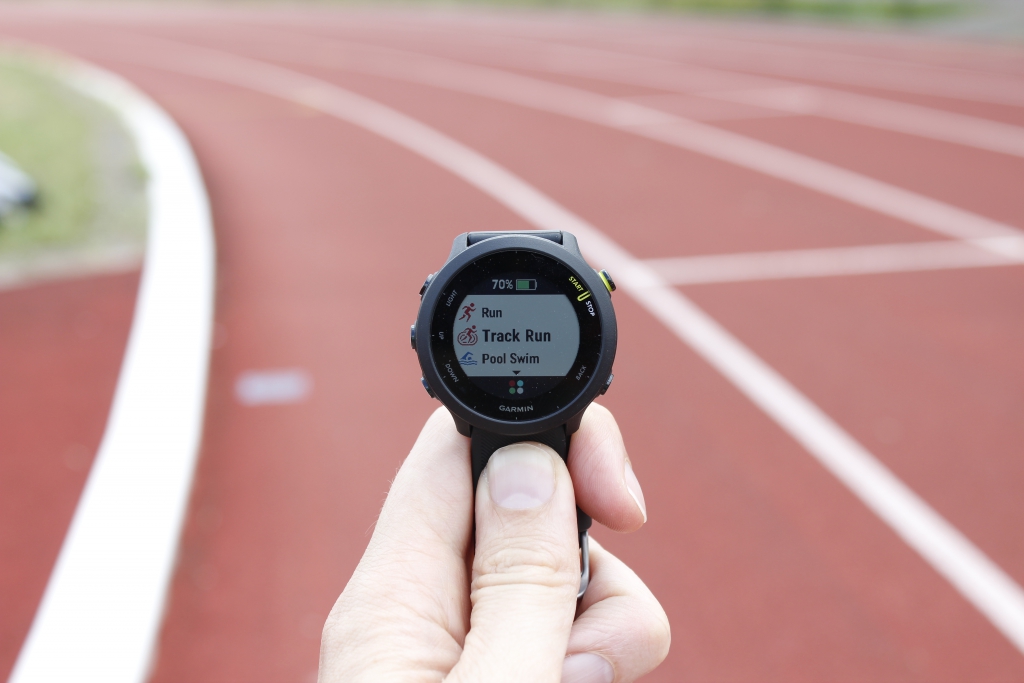
If you’ve followed the development of watches closely for the past year, you’ll know this feature. COROS was the first to add it to their PACE 2 watch in 2020 and Garmin was quick to follow. The track mode is ideal for running on the track. After a couple of instalment laps, your watch can recognise the track and will give you perfect laps.
Because of this, your pace will be a lot more accurate. Here’s a ‘normal’ run from the Forerunner 745 (in red), it does have track mode too, but to compare the same session I just used a normal run mode. Next to a track mode run on the Forerunner 55 (in pink):
Over the course of that 4400 meter run the non track mode was about 100m behind. Which I find interesting as I would have expected the opposite, but I looking at the GPS data, the red line clearly is cutting the corner at the north-east part of the track. So that’s where the difference comes from.
The pink is a bit hidden under the red ellipse drawing in the style of a 4 year old for the normal run mode, so here’s the Track mode run by itself:
Yes, if you look closely, it’s slightly off the track, but that’s irrelevant for your data. It might actually be a slight mapping issue. Then, if you look at lap pace, you can also see the difference again the Forerunner 55 in Track Mode and the Forerunner 745 in normal run mode:
A pro-tip I’d give is to set the auto-lap on track mode to 400m. You don’t have to think about it again and you’ll hear it ding every lap at the same time!
PacePro
PacePro is a really nice feature and one I certainly did not expect to find on the Forerunner 55. With PacePro you can set a pace plan for an upcoming run or event. You can then set if you want a flat pace, positive or negative split. If you have a course, adding it will even take in elevation data to make sure you’re not trying to stay on the fastest pace while running uphill. Here’s a screen recording of PacePro, it’s rather big, so you’ll have to scroll a bit.
This looped video shows a PacePro strategy for a 7,5 miles (12k) run with some hilly bits on ‘the Tan‘. Using the sliders you can see positive and negative splits and set the uphill effort. A harder effort basically ignores elevation data, and an easier effort allows you to slow down significantly.
Incident Detection
Another added feature is Garmin’s incident detection. After it detects an incident, the watch will start counting down for 30 seconds before alerting the contact’s you’ve set. The countdown is useful as it does sometimes have a false positive. It will start bleeping at you and you can cancel the alert notification. It’s a useful feature. I’ve had it trigger twice for me in the past year of running and cycling. Once when I crashed with my mountainbike on a trail. I got thrown of my bike and the Vivoactive 4 I had on started screaming at me. And the second time was actually last week, out with the Forerunner 55. During a sprint interval session I pulled my quad mid sprint and stopped abruptly. Which, yes, technically was an incident. But I did cancel alerting my wife and dad, as it wasn’t that big an incident.
Basic Suggested Workouts
Another new feature to the entry level Forerunner is that you get basic suggested workouts. I’ve been using these for a while and I’ve slowly increased my VO2 Max and feel a lot fitter. With basic I mean that you’ll get ‘basic’ run sessions. No hard sprint intervals or fancy VO2 max sessions, but suggested runs with pace and distance.
If you really want to see more about this, watch the Running Channel on YouTube.
Swimming
New to the Garmin 55 is the swim activity profile. Using its internal accelerometer, the Forerunner can track how much you’ve swam. For just doing laps in the pool this works well. It will detect how many laps you’ve done and give you pace, strokes, swolf and heart rate. Technically, you don’t have to do anything as long as you just do laps. It will also recognise your rests.
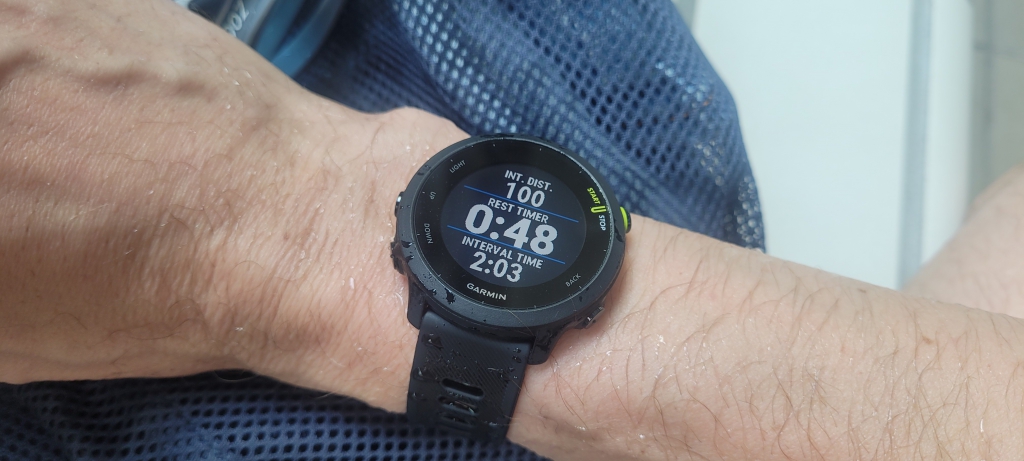
If you want to do drills, that’s possible too. Just manually go to the drills page, start a drill and in the end give the distance of the drill. This way it won’t mess up your your distance.
Heart Rate Accuracy
The Forerunner 55 seems to have a better accuracy than the previous model, I’ve taken it on a couple of runs to see how it matches up. In the below graph you’ll see The forerunner 55 in Purple. Matching with the FR45 and a FR745 connected to a HRM-Pro chest strap. Arguably the chest strap is the most accurate.

There is definitely improvement on the FR55, it still lags, but that’s perfectly normal for an optical HR monitor compared to a chest strap. It does do a better job than its predecessor overall.
I’ve also tested it swimming, the results are a bit strange, it reported quite a high heart rate. I don’t feel like I hit 170. Once you workout a lot, you know what your zones feel like. Swimming for me is currently a challenge breathing wise. I haven’t been able to swim in months and I’m limited by oxygen. Looking at the graph, the FR55 seems.. high.

GPS Accuracy
I always like to check the GPS accuracy and this seems to have improved quite a bit from the Forerunner 45.
Now I don’t have high rises around me, but I do have a notorious bit through a forest where watches always seem to struggle. So out I went with the Forerunner 45, Forerunner 55 and the Forerunner 745 to compare their GPS signals.
So here you can clearly see that the Forerunner 45 is really struggling, with up to 50 meters off. This is a thing I’ve noticed in general, the Forerunner 55 has got a performance bump and is now quick to grab GPS signal and seems to be more accurate. The old 45 would sometimes take 6 minutes before finally chiming in too.
So then I tried something easier, open field and half cover.
This was, in terms of GPS a very boring run. Open fields and only one bit with tree cover. I ran with 3 watches and all three give the same results. Spot on in the open, and a bit wobbly in tree cover. Nothing unusual, all pretty good.
Conclusion
Honestly, the Forerunner 55 is a big step for Garmin in the ‘lower’ segment. With all the new features the Forerunner 245 is becoming a hard sell. The 55 is lightweight, and packs a heap of features that are really useful, with the added profiles of Swimming, Virtual Running, etc, this is a great watch for starting or even avid runners.
Prices & Availability
| US $ | GB £ | EU € | |
|---|---|---|---|
| Forerunner 55 | $199 on Amazon $200 at Rei | £179 on Amazon.co.uk £179 on Wiggle | € 212,99 on Wiggle |

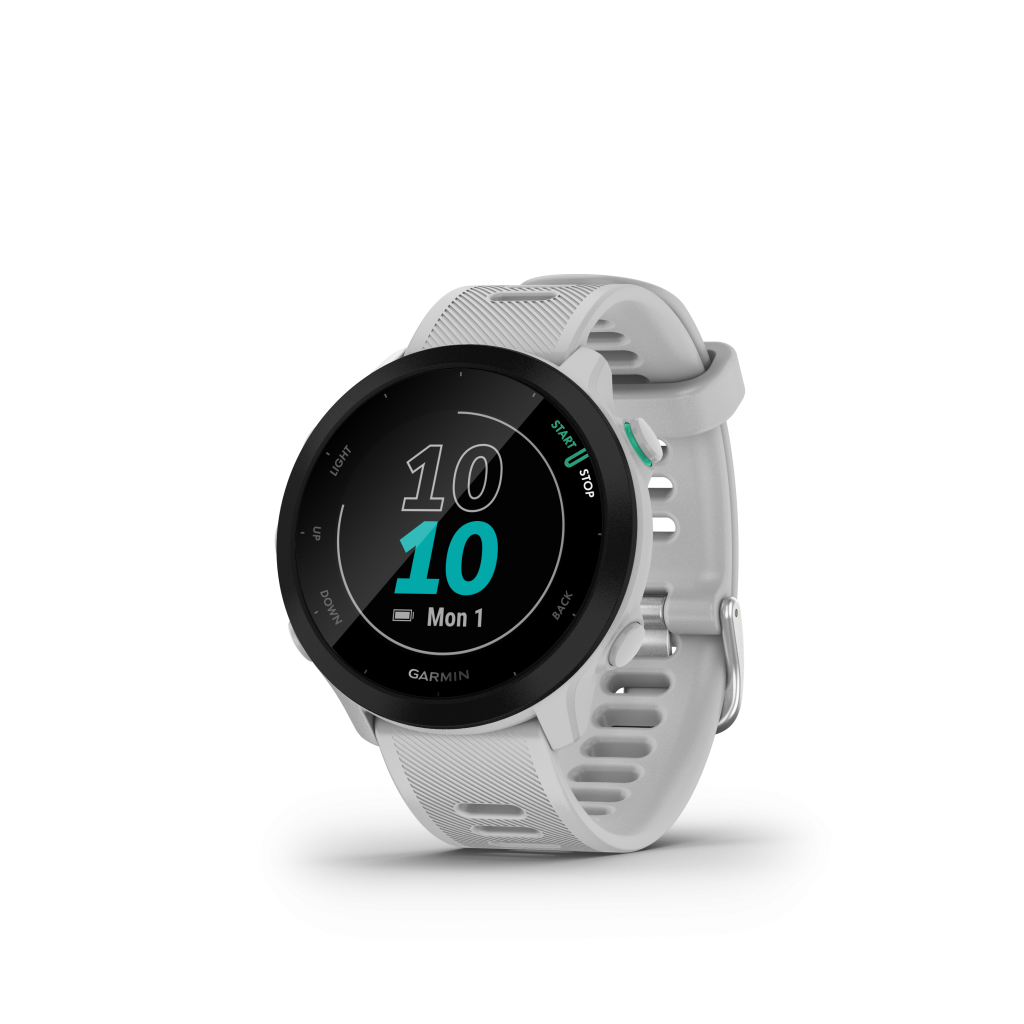
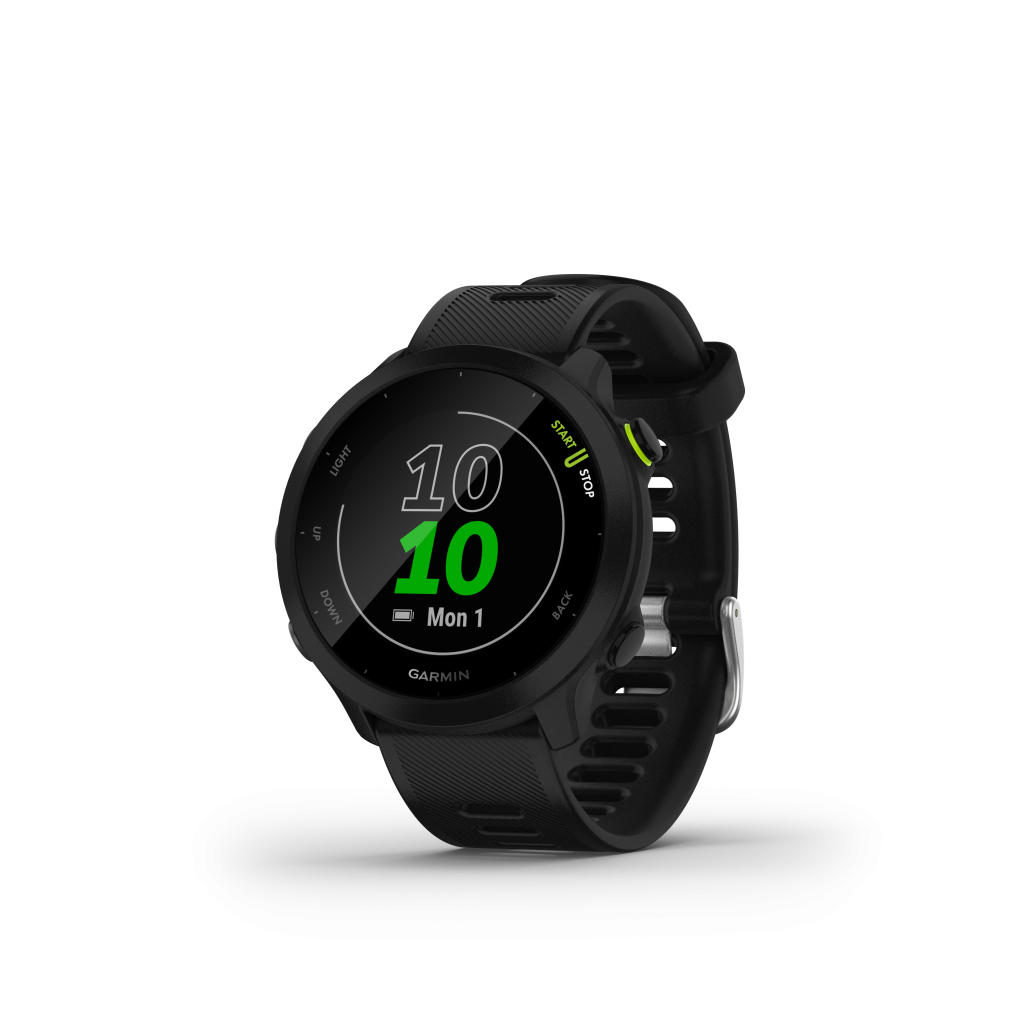
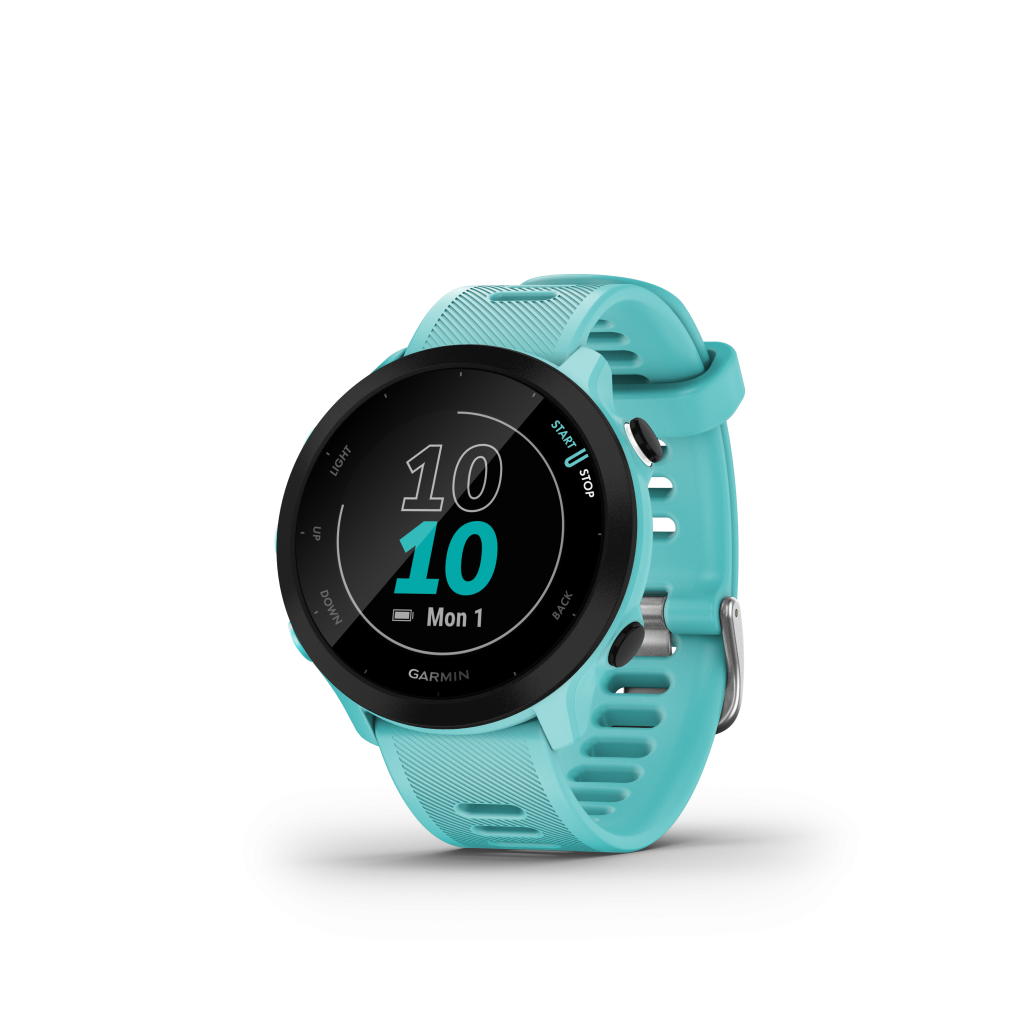
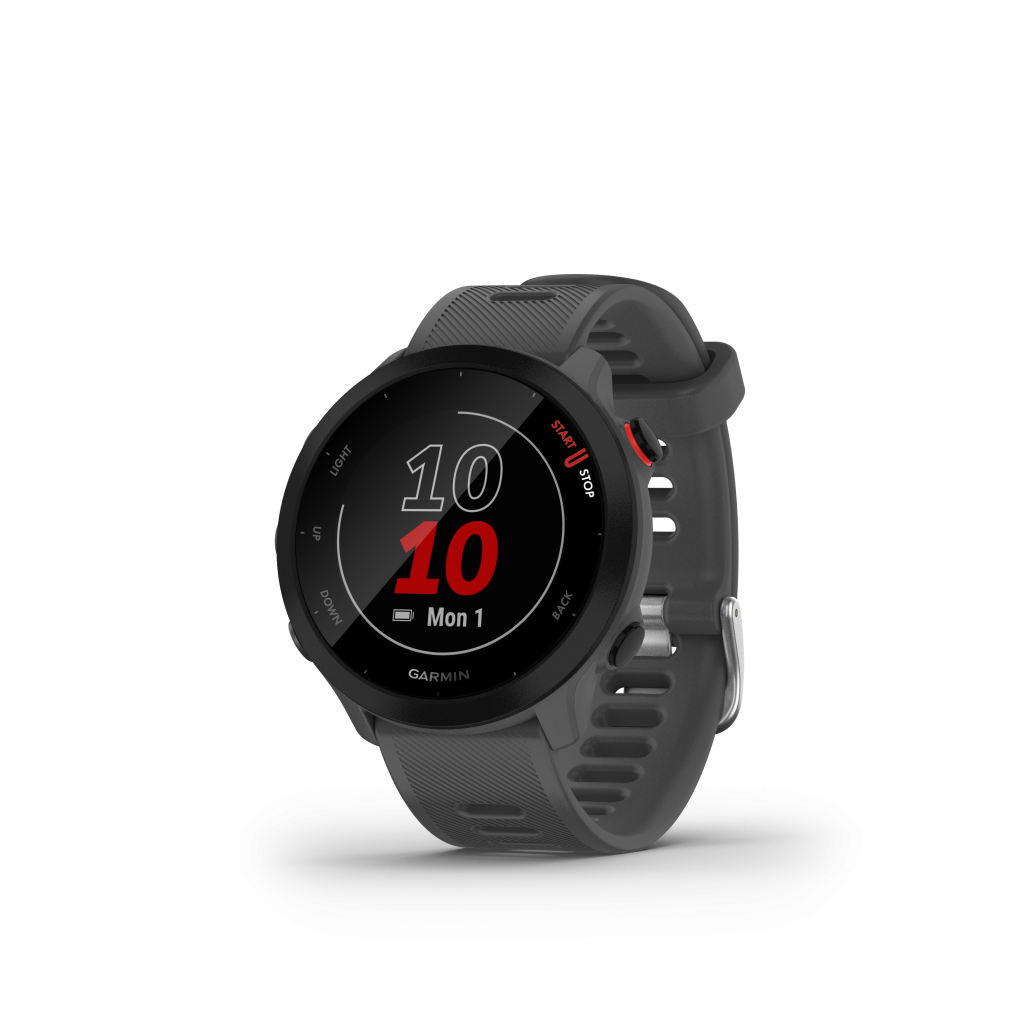
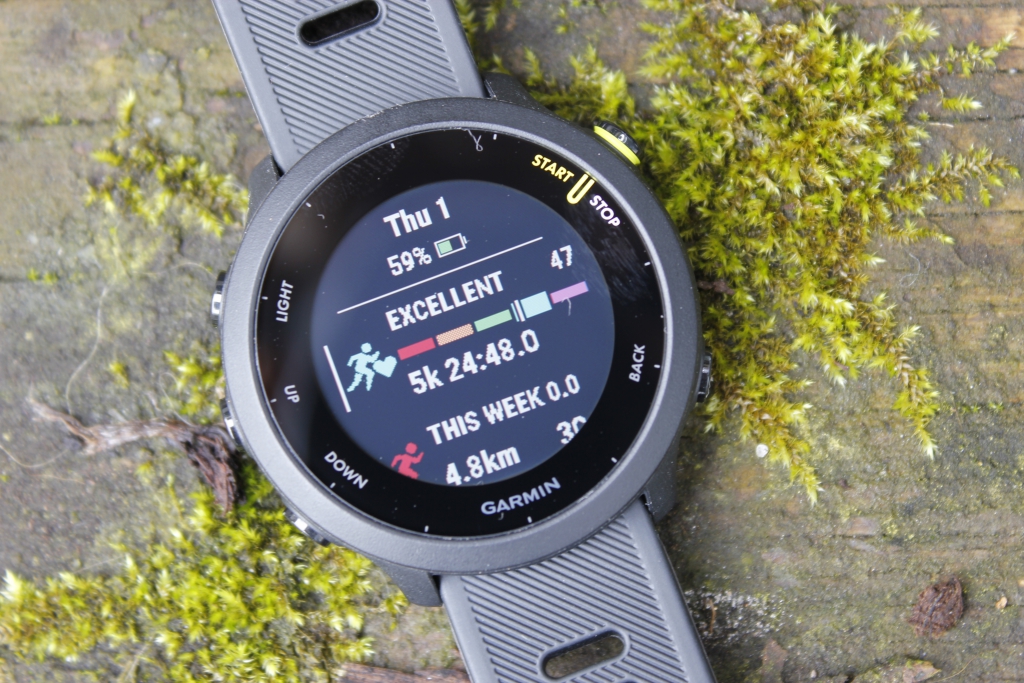
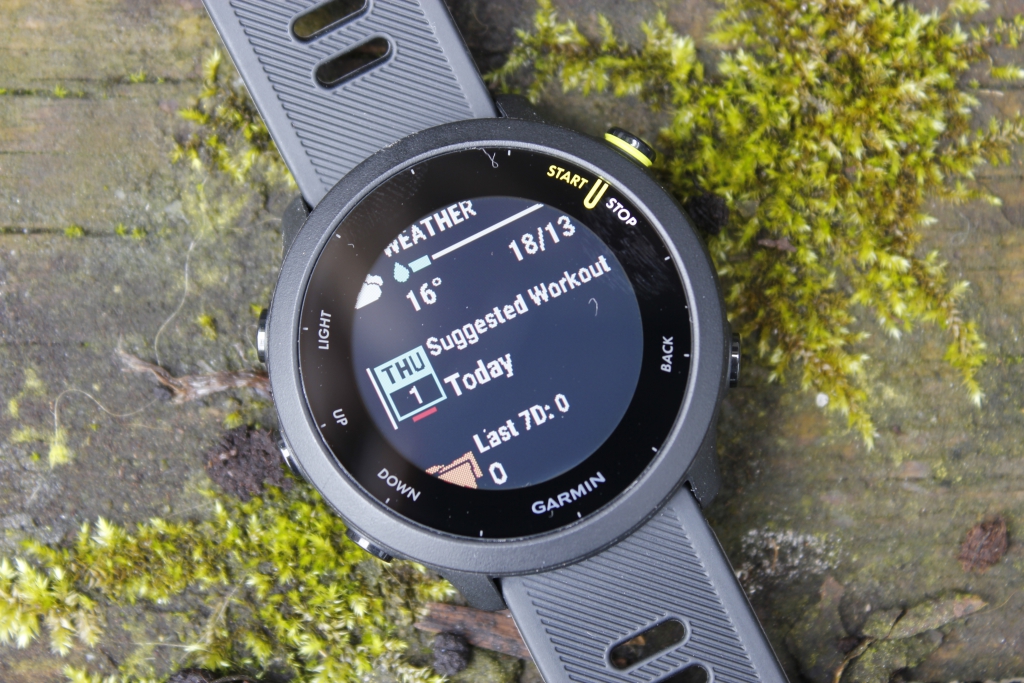
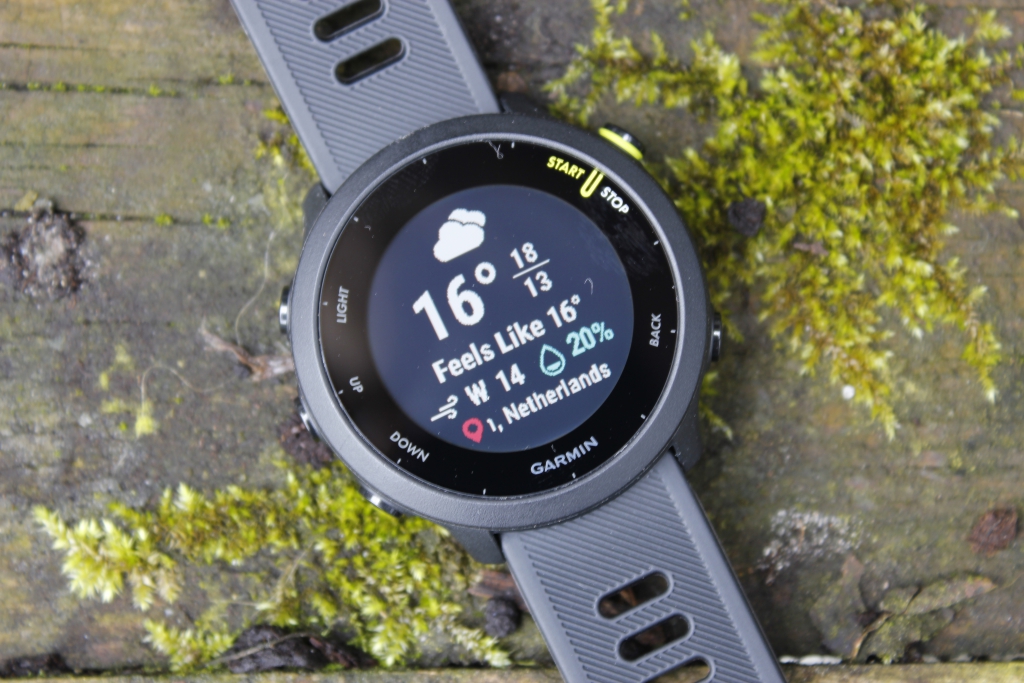
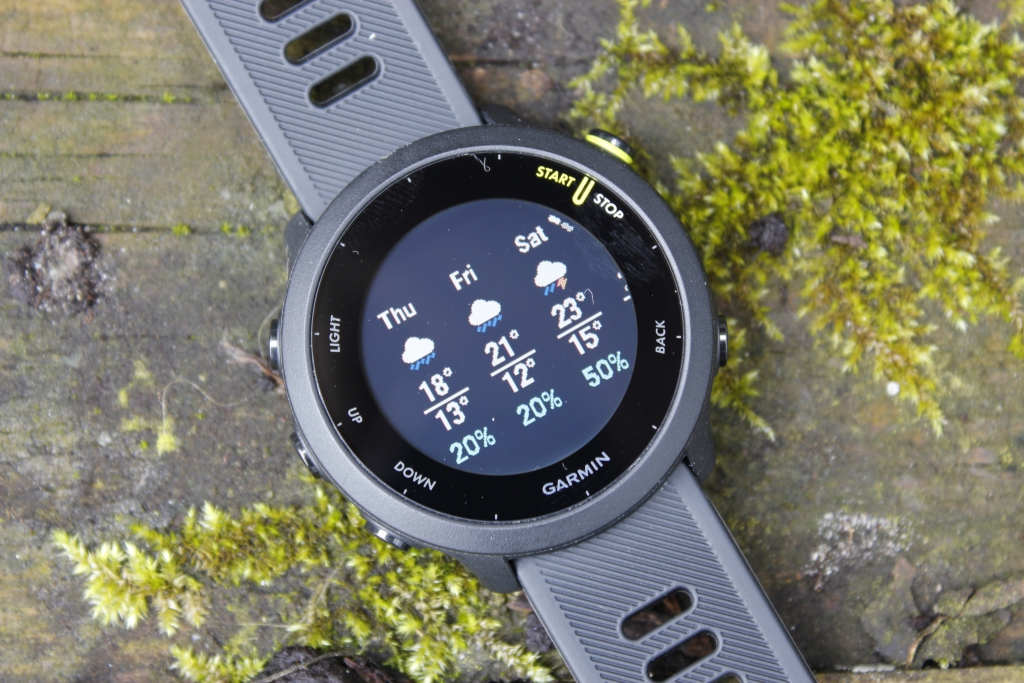
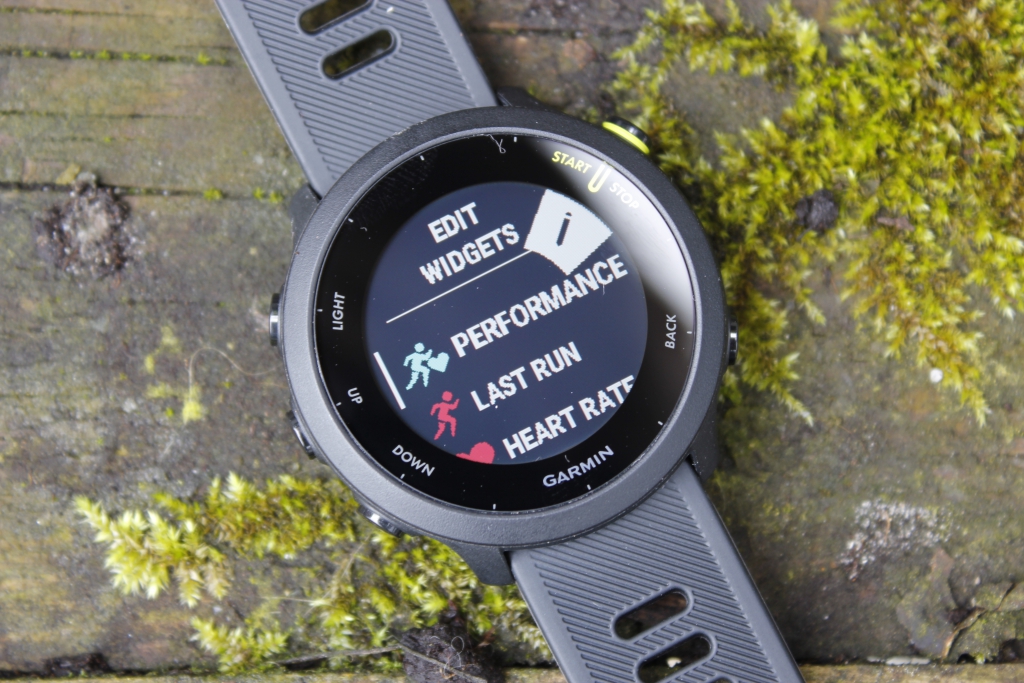
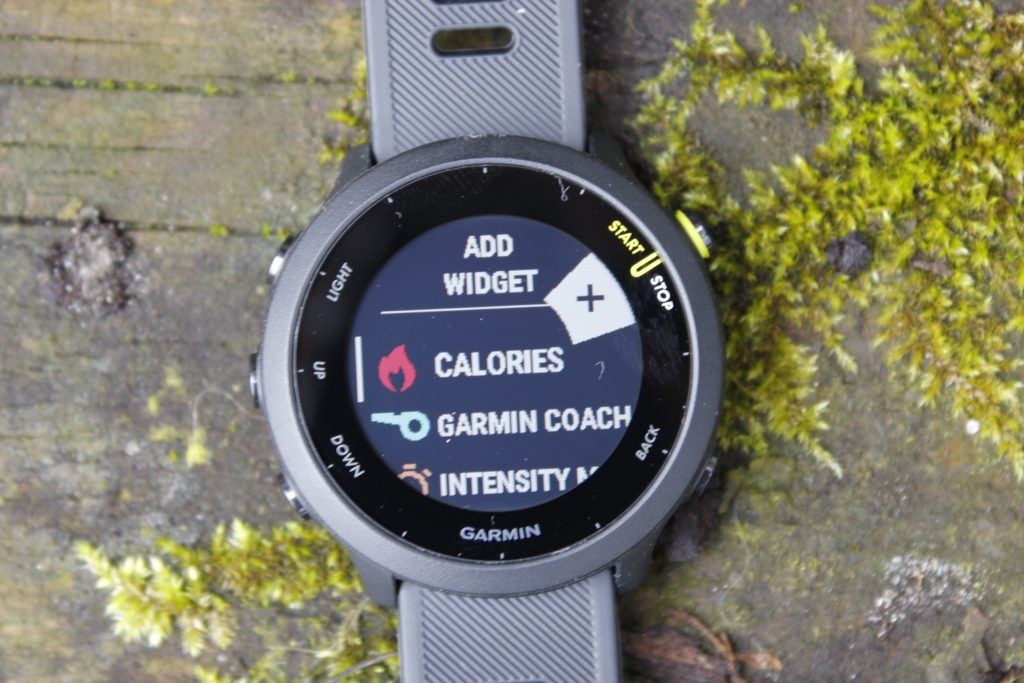
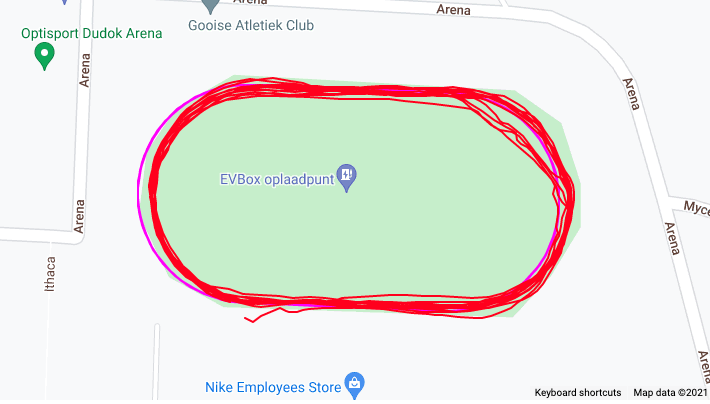
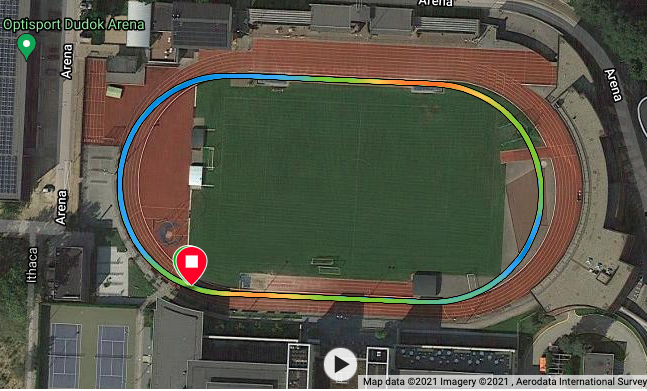
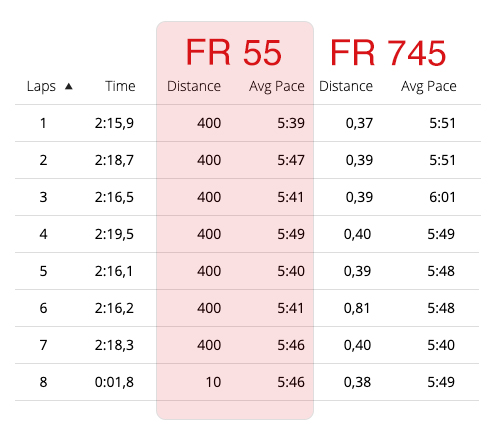
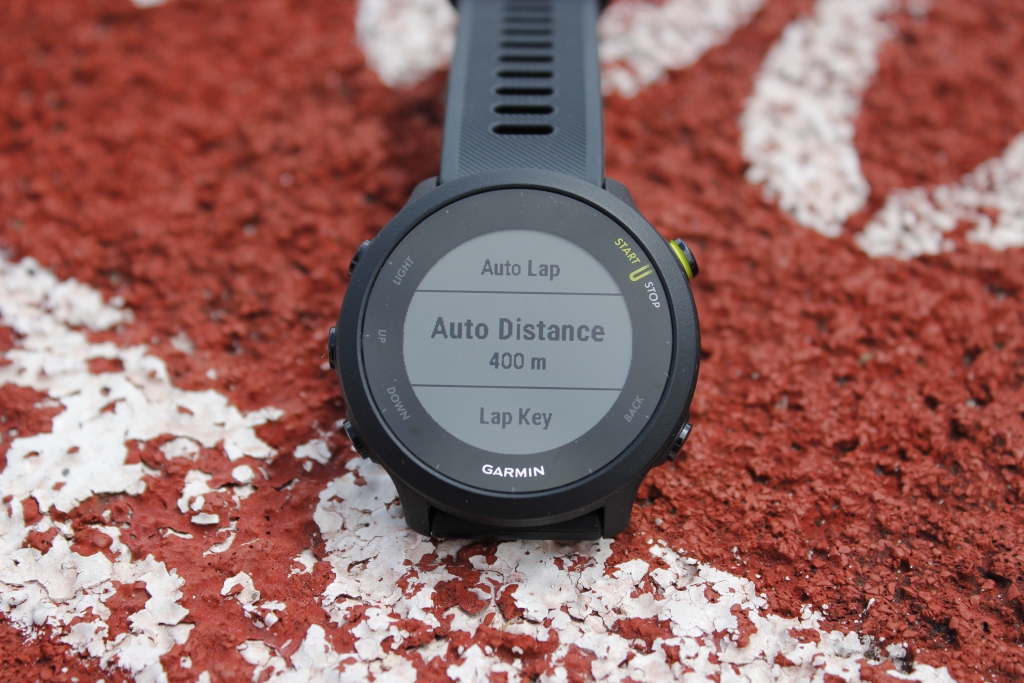
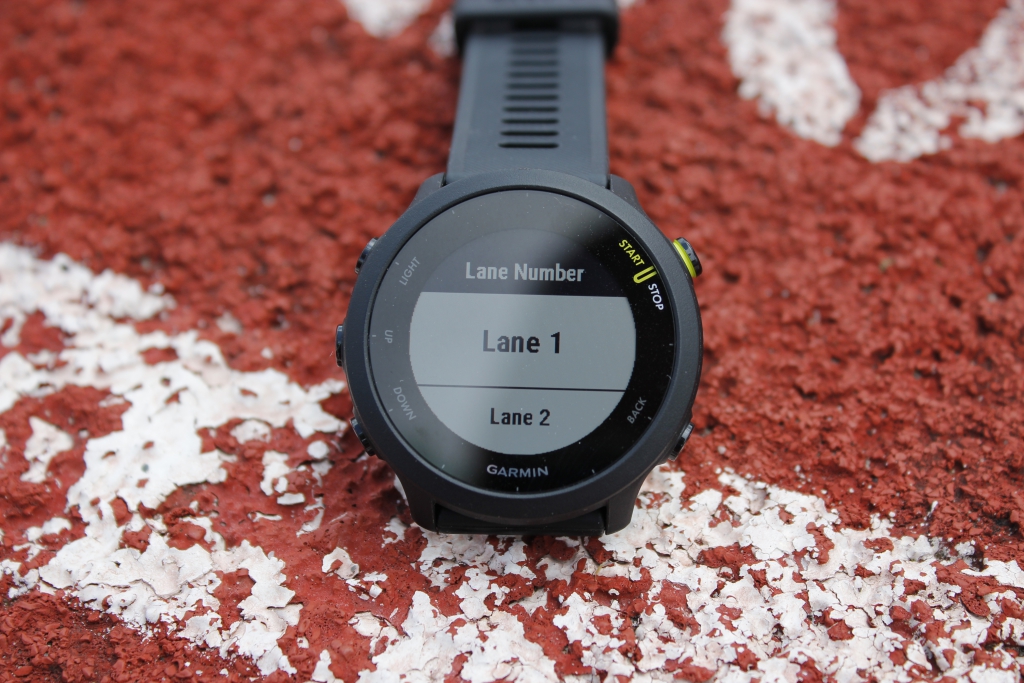
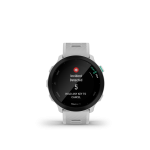
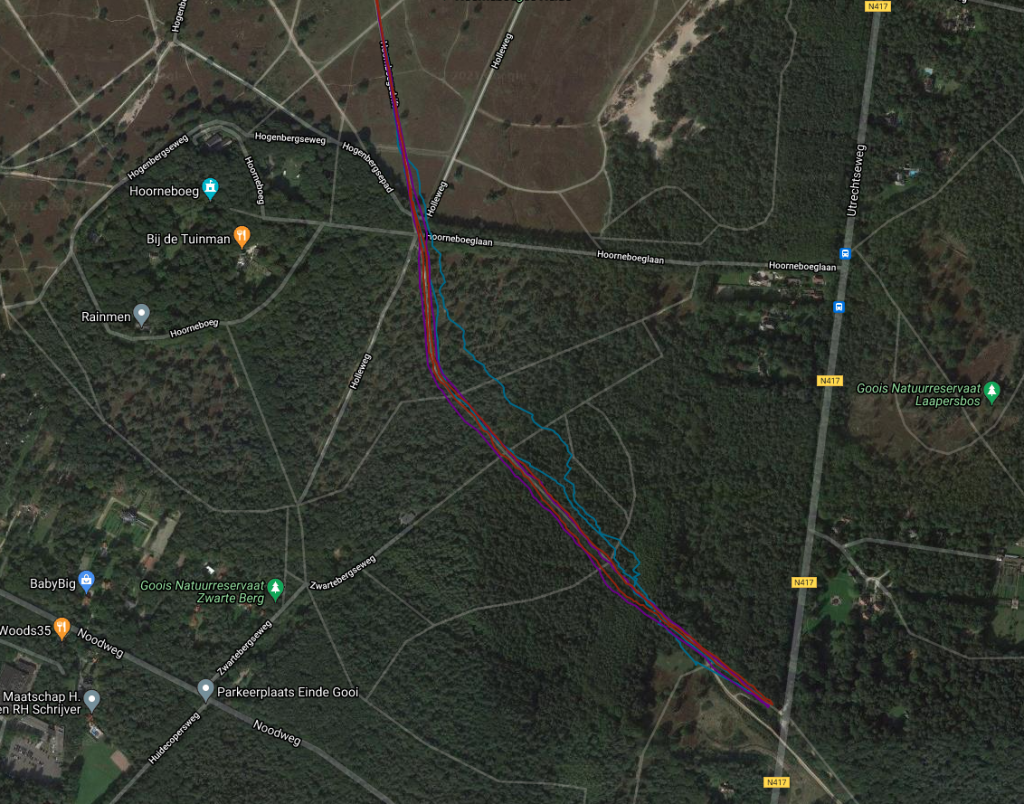
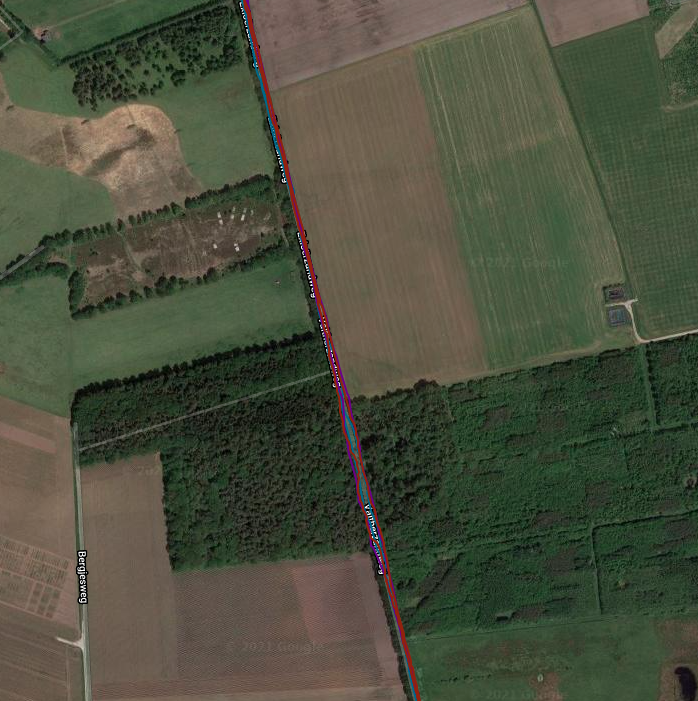
Leave a comment